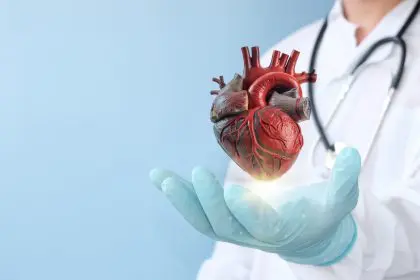The modern epidemic of sleep deprivation has reached alarming proportions, with millions of Americans routinely sacrificing sleep for work, entertainment, or daily obligations without understanding the devastating consequences for their cardiovascular health. Medical professionals are increasingly recognizing that even brief periods of sleep restriction can trigger immediate and potentially lasting damage to the heart and blood vessels, fundamentally changing how we understand the relationship between sleep and cardiovascular disease.
The speed at which sleep deprivation affects heart health has surprised healthcare providers, with measurable cardiovascular damage occurring after just three consecutive nights of inadequate sleep. This discovery challenges the common belief that occasional sleep loss is harmless and can be easily recovered from with a few good nights of rest.
Understanding these rapid cardiovascular changes provides crucial insight into why chronic sleep deprivation has become such a significant risk factor for heart disease, stroke, and other serious cardiovascular events. The biochemical mechanisms underlying these changes reveal how sleep serves as a fundamental pillar of cardiovascular health rather than simply a luxury for those with time to spare.
Sleep loss triggers immediate heart damage
Medical observations reveal that the cardiovascular system responds almost immediately to sleep deprivation, with measurable changes occurring within days rather than weeks or months. These rapid changes affect multiple aspects of heart health simultaneously, creating a cascade of problems that can have lasting consequences for cardiovascular function.
The heart rate becomes more irregular with sleep deprivation, losing the natural variability that indicates healthy cardiovascular function. This loss of heart rate variability serves as an early warning sign of cardiovascular stress that can predict future heart problems even in otherwise healthy individuals.
Blood pressure elevation occurs consistently with inadequate sleep, creating additional strain on the heart and blood vessels that can accelerate the development of cardiovascular disease. Even temporary blood pressure increases from sleep loss can contribute to long-term cardiovascular damage when they occur repeatedly.
The electrical conduction system of the heart becomes affected by sleep deprivation, potentially leading to dangerous rhythm abnormalities that can cause sudden cardiac events. These electrical changes may not produce obvious symptoms but can significantly increase the risk of life-threatening arrhythmias.
Inflammation devastates cardiovascular health
Sleep deprivation triggers widespread inflammation throughout the body, with the cardiovascular system bearing much of the damage from these inflammatory processes. Inflammatory proteins surge during periods of inadequate sleep, creating conditions that directly promote the development and progression of heart disease.
The blood vessel walls become inflamed with sleep loss, leading to the formation of atherosclerotic plaques that can eventually block blood flow to the heart and brain. This inflammatory damage to blood vessels represents one of the primary mechanisms by which sleep deprivation increases cardiovascular disease risk.
Chronic inflammation from repeated sleep deprivation creates a toxic environment within the cardiovascular system that accelerates aging and disease processes. This inflammatory state can persist even after sleep patterns improve, suggesting that sleep debt may have lasting consequences for heart health.
The body’s natural anti-inflammatory mechanisms become impaired with inadequate sleep, reducing the ability to repair damage and fight disease. This impairment creates a cycle where sleep loss promotes inflammation while simultaneously reducing the body’s ability to recover from inflammatory damage.
Blood chemistry changes reveal hidden dangers
Sleep deprivation causes profound alterations in blood chemistry that affect cardiovascular health through multiple pathways. These biochemical changes can occur rapidly and may persist longer than the sleep deprivation period itself, creating lasting cardiovascular risks.
Cholesterol levels become disrupted with inadequate sleep, with harmful LDL cholesterol often increasing while protective HDL cholesterol decreases. These lipid changes contribute directly to atherosclerosis development and increase the risk of heart attacks and strokes.
Blood sugar regulation becomes impaired with sleep loss, creating conditions similar to diabetes that significantly increase cardiovascular disease risk. These metabolic changes can become permanent with chronic sleep deprivation, highlighting the importance of maintaining healthy sleep patterns.
Blood clotting mechanisms become altered with sleep deprivation, potentially increasing the risk of dangerous clots that can cause heart attacks and strokes. The blood may become stickier and more prone to clotting when sleep is inadequate, creating immediate cardiovascular dangers.
Stress hormones overwhelm the heart
Sleep deprivation causes dramatic increases in stress hormones, particularly cortisol, that place enormous strain on the cardiovascular system. These hormonal changes create conditions that promote high blood pressure, irregular heart rhythms, and accelerated atherosclerosis development.
Adrenaline levels remain elevated with inadequate sleep, keeping the heart in a constant state of high alert that can exhaust cardiac function over time. This chronic adrenaline exposure can lead to heart muscle damage and increased risk of sudden cardiac events.
The natural daily rhythm of hormone production becomes disrupted with sleep loss, preventing the normal nighttime recovery period when the cardiovascular system should be resting and repairing. This disruption means the heart never gets adequate recovery time from daily stresses.
Growth hormone production, which occurs primarily during deep sleep, becomes severely impaired with inadequate rest. This hormone is crucial for tissue repair and cardiovascular health maintenance, making its disruption particularly concerning for heart health.
Immune system dysfunction threatens hearts
Sleep deprivation severely compromises immune system function, creating conditions that directly threaten cardiovascular health through increased infection risk and impaired healing capacity. The immune system plays crucial roles in maintaining healthy blood vessels and heart tissue.
Autoimmune processes may be triggered by inadequate sleep, potentially leading to inflammatory attacks on the heart and blood vessels. These autoimmune effects can cause lasting cardiovascular damage that persists long after sleep patterns improve.
The ability to fight infections becomes compromised with sleep loss, and certain infections can directly damage the heart muscle or trigger dangerous inflammatory responses. This increased infection susceptibility represents an often-overlooked cardiovascular risk from sleep deprivation.
White blood cell function becomes impaired with inadequate sleep, reducing the body’s ability to remove cellular debris and repair damaged tissues throughout the cardiovascular system. This impaired cleanup function can allow cardiovascular damage to accumulate over time.
Exercise cannot compensate for sleep loss
Many people believe that regular exercise can offset the negative health effects of inadequate sleep, but cardiovascular evidence suggests otherwise. While exercise provides important health benefits, it cannot fully protect the heart from the damage caused by sleep deprivation.
The cardiovascular benefits of exercise become diminished when performed in a sleep-deprived state, as the body’s ability to adapt and recover from physical stress is impaired. This means that sleep-deprived individuals may not receive the full heart-protective benefits of their exercise efforts.
Recovery from exercise becomes impaired with inadequate sleep, potentially leading to overtraining and increased cardiovascular stress rather than improved fitness. The heart may struggle to adapt to exercise demands when sleep is insufficient for proper recovery.
Athletes who chronically restrict sleep face elevated cardiovascular risks despite their high fitness levels, demonstrating that exercise alone cannot overcome the heart damage from sleep deprivation. This finding emphasizes sleep’s unique and irreplaceable role in cardiovascular protection.
Age amplifies sleep-related heart risks
Older adults face particularly severe cardiovascular consequences from sleep deprivation due to age-related changes in both sleep patterns and heart function. The combination of natural aging processes with sleep loss creates especially dangerous conditions for the cardiovascular system.
Sleep quality naturally declines with age, meaning older adults are more likely to experience the cardiovascular damage associated with inadequate rest. This age-related sleep deterioration may contribute significantly to the increased heart disease risk observed in older populations.
The heart’s ability to recover from stress decreases with age, making older adults more vulnerable to the cardiovascular damage from sleep deprivation. What might cause temporary problems in younger individuals can lead to permanent heart damage in older adults.
Medications commonly used by older adults can further disrupt sleep quality, creating a dangerous cycle where health conditions require medications that worsen sleep and increase cardiovascular risks. Managing this complex interaction becomes crucial for heart health in older adults.
Gender differences create unique vulnerabilities
Women face distinct cardiovascular risks from sleep deprivation related to hormonal fluctuations throughout their lives. Estrogen and progesterone changes during menstrual cycles, pregnancy, and menopause can affect both sleep quality and heart health simultaneously.
Hormonal changes during menopause often disrupt sleep patterns while also increasing cardiovascular disease risk, creating a double threat to women’s heart health. The loss of estrogen’s protective effects on the cardiovascular system combined with sleep disruption can dramatically increase heart disease risk.
Sleep disorders may present differently in women, potentially leading to underdiagnosis and inadequate treatment that allows cardiovascular damage to progress unchecked. Women may experience sleep-related heart problems that go unrecognized due to gender differences in symptom presentation.
Caregiving responsibilities often disrupt women’s sleep patterns chronically, creating sustained cardiovascular stress that can accumulate over years or decades. The societal expectation for women to sacrifice their own sleep for family needs can have serious long-term cardiovascular consequences.
Environmental factors accelerate heart damage
Modern environments often contain numerous factors that disrupt sleep quality and compound the cardiovascular risks from inadequate rest. Light pollution, noise, air quality, and temperature control all affect sleep in ways that can influence heart health.
Blue light exposure from electronic devices disrupts natural sleep patterns while also potentially affecting cardiovascular function directly. This double impact creates particularly concerning risks for individuals who use devices extensively before bedtime.
Air pollution and poor indoor air quality can disrupt sleep while also directly damaging the cardiovascular system, creating multiplicative risks for heart health. Addressing air quality becomes important for both sleep improvement and cardiovascular protection.
Noise pollution affects sleep quality and directly stresses the cardiovascular system through chronic activation of stress responses. Living in noisy environments creates ongoing cardiovascular risks that compound with sleep-related heart damage.
Technology’s double-edged impact
While technology can disrupt sleep and harm cardiovascular health, it can also provide tools for monitoring and improving both sleep and heart health. Smart devices can track sleep patterns and heart function, providing valuable insights for health optimization.
Sleep tracking technology can help identify patterns and problems that affect both sleep quality and cardiovascular health, enabling targeted interventions that protect the heart. However, obsessive monitoring can create anxiety that actually worsens both sleep and heart health.
Telemedicine and remote monitoring capabilities allow for better management of sleep disorders and cardiovascular conditions, potentially preventing the escalation of problems that result from inadequate sleep. These technologies can provide earlier intervention and better outcomes.
Workplace technology and constant connectivity can create chronic sleep disruption that severely impacts cardiovascular health over time. Learning to establish boundaries with technology becomes crucial for protecting both sleep and heart health.
Immediate strategies for heart protection
Creating consistent sleep schedules that prioritize adequate duration and quality provides immediate cardiovascular protection benefits. The heart begins to recover from sleep debt within days of improved sleep patterns, though full recovery may take longer.
Optimizing sleep environments by controlling temperature, lighting, and noise can provide rapid improvements in sleep quality that translate to better cardiovascular health. These environmental modifications often produce noticeable benefits within the first week of implementation.
Stress management techniques that promote better sleep also provide direct cardiovascular benefits by reducing the stress hormones that damage the heart. Meditation, relaxation exercises, and stress reduction strategies support both sleep and heart health simultaneously.
Dietary modifications that support better sleep can also improve cardiovascular health directly, creating synergistic benefits that enhance overall health outcomes. Avoiding large meals, caffeine, and alcohol before bedtime supports both sleep quality and heart function.
Long-term cardiovascular protection
Maintaining healthy sleep patterns throughout life provides cumulative cardiovascular protection that may prevent or delay the onset of serious heart disease. The investment in good sleep habits early in life pays dividends in cardiovascular health for decades.
Sleep disorders require prompt treatment to prevent escalating cardiovascular damage that may become irreversible over time. Early intervention for sleep problems represents a crucial strategy for long-term heart health protection.
The interaction between sleep health and other cardiovascular risk factors creates multiplicative effects, meaning that good sleep habits can significantly reduce the heart disease risks from other factors like high blood pressure or diabetes.
Building sleep awareness and prioritization into daily life requires viewing sleep as a medical necessity rather than a luxury, fundamentally changing how individuals approach their daily schedules and life priorities to protect their cardiovascular health.
Understanding that just three nights of poor sleep can trigger lasting cardiovascular damage transforms sleep from a lifestyle choice to a medical emergency. The immediate and dramatic effects of sleep deprivation on heart health demand that individuals prioritize sleep as urgently as they would any other serious health threat, recognizing that adequate rest is not optional but essential for cardiovascular survival and long-term heart health protection.














